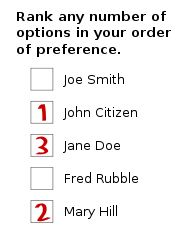Google shouldn't track my behavior. That's a simple enough concept, but that seems to have been lost in recent days with the
publication of their new privacy policy. Why is it that they can't keep their hands off of my data?
Well, I mean, I want them to manage my email, sure. That data they should manage, but they shouldn't read it. I mean, they should read it in order to format it, spam-filter it, check it for phishing links and invalid from-addresses. They should also read the attachments so that they can present me with easy ways of downloading or displaying them as needed. Oh and they should present contacts that are mailed to me in useful ways and allow me to import them into my contacts list. But they shouldn't be reading my mail, you know? Like for advertising. I know I could pay money and get a no-ads version of gmail through Google Apps, but I don't want to pay for it, I just want random ads for political candidates from other countries and arthritis medication instead of things I'm interested in. You know... because Google shouldn't be reading my mail.
And they definitely shouldn't be coordinating across their platforms. I mean sure, they should read all of my texts and instant messages so that I can easily index them along with my mail and search through the whole thing at once. I'd really like more features for adding tags to text messages through Google Voice too. But I just don't want them to read that stuff. You know, because it's ... icky.
Also, I'd like Google to stop sharing my private data with other companies. OK, I know they don't do that, but let's say they did. That'd be pretty annoying, right? See? Right, there. Google is doing annoying things to us! Google says their corporate motto is "don't be evil" (actually, it's part of the S1 filing with the SEC, a sort of proviso to potential stock holders that they'll do things like pull out of China if they feel they can't provide a helpful service without propping up the state system of censorship, but that's sort of the same thing, right?) But I think they are evil because they unified their privacy policy and say that their various products will share information. I mean, sharing my information is bad, right? Well, except that I do want it all to be available in ways that make sense. I mean, Google+ should definitely read my contacts and Google Calendar should be integrated with Google+ to allow Google Pages companies to share corporate events calendars. I'd also like to be able to share my free/busy time with circles. I just don't want that other kind of sharing ... because it's icky.
OK, I'll admit it, I don't really know what it is that I'm worried about. Yeah, Google gives me more choice, control and ability to take my data out of their services than anyone else. Sure, they champion the use of open standards that make the Internet a playground for entrepreneurs and technophiles alike. And I have to admit that they've fostered a boom in open source software development that has taken systems like Linux into the hands of millions of people. But none of that changes the fact that I'm kind of scared about a nebulous evil that I expect to be creeping around the door any second now.
Good thing Congress is getting involved. You don't see Facebook sharing ... well OK. But you don't see Yahoo distributing user information across ... well OK. But you don't see Cisco coordinating with the Federal ... Hmm. Well, it's just scary!



